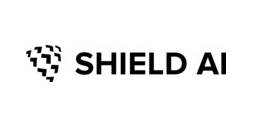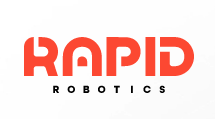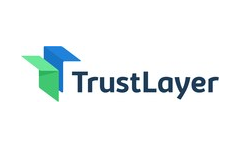AI Startups Continue to Rack Up Millions in VC Funding in August 2021

Usually, August is the time of the hot, uncomfortable dog days of summer, but for a sampling of five AI startups, the last full month of summer has been anything but miserable.
Instead, August 2021 has been a busy month of healthy venture capital funding round announcements for startups in fields from robotics to AI-powered applications to autonomous military aircraft flying systems.
Shield AI
There was $210 million in Series D funding for Shield AI, a defense technology company that is developing AI and self-piloting techniques for military aircraft. Based in San Diego, Shield AI’s latest funding round was led by Disruptive, an Austin, TX based late-stage technology investor headed by Alex Davis; with participation from multiple top tier venture funds, including Point72 Ventures, which led Shield AI's Series C.
 The Series D infusion will enable Shield AI and its recently acquired companies, Heron Systems and Martin UAV, to accelerate their plans for growth across the defense and commercial industries, according to the company.
The Series D infusion will enable Shield AI and its recently acquired companies, Heron Systems and Martin UAV, to accelerate their plans for growth across the defense and commercial industries, according to the company.
Shield AI's Hivemind software is a self-driving autonomy stack for military and commercial aircraft that uses algorithms for planning, mapping, and preparing aircraft to execute dynamic flight maneuvers using reinforcement learning for discovery, learning, and execution of tactics and strategies, the company states.
Rapid Robotics
Then there was the $36.7 million in Series B funding received by San Francisco-based Rapid Robotics, which builds robotic arms and other automation equipment for manufacturers who cannot find enough qualified human workers to produce their goods, especially in light of the ongoing COVID-19 pandemic, according to the company.
 The Series B funding was led by Kleiner Perkins and Tiger Global, with existing investors NEA, Greycroft, Bee Partners and 468 Capital also participating. The latest round is Rapid’s third in less than a year, bringing its total funding to $54.2 million.
The Series B funding was led by Kleiner Perkins and Tiger Global, with existing investors NEA, Greycroft, Bee Partners and 468 Capital also participating. The latest round is Rapid’s third in less than a year, bringing its total funding to $54.2 million.
The company has developed its Rapid Machine Operator (RMO), which comes pre-trained and ready to perform common machine-tending tasks using special grippers, computer vision and other built-in technologies, according to the vendor.
The devices can be put to work in hours, transferred between tasks as needed and can be acquired on a subscription basis for less than $2,100 per month, the company says.
ClosedLoop.AI
 Based in Austin, Texas, healthcare data science platform ClosedLoop.AI secured $34 million in Series B financing in August for its AI platform that combines a broad machine learning platform with a library of healthcare-specific ML features and model templates. The platform allows customers to build AI-based applications even if they don’t have formal training, according to the vendor. The platform also provides a wide range of healthcare machine learning model templates and prebuilt clinical features.
Based in Austin, Texas, healthcare data science platform ClosedLoop.AI secured $34 million in Series B financing in August for its AI platform that combines a broad machine learning platform with a library of healthcare-specific ML features and model templates. The platform allows customers to build AI-based applications even if they don’t have formal training, according to the vendor. The platform also provides a wide range of healthcare machine learning model templates and prebuilt clinical features.
The company’s investment round was led by Telstra Ventures with participation from Breyer Capital, Greycroft Ventures, .406 Ventures, and Healthfirst. Angel investors Adam Boehler and former IBM CEO Sam Palmisano also participated in the round.
TrustLayer
 TrustLayer, an AI-powered insurance verification and collaborative risk management vendor, secured $15 million in Series A funding that was led by Craft Ventures, with participation from returning investors Abstract Ventures, Box Group, Propel Venture Partners, NFP Ventures, Sure Ventures and new investor PruVen Capital.
TrustLayer, an AI-powered insurance verification and collaborative risk management vendor, secured $15 million in Series A funding that was led by Craft Ventures, with participation from returning investors Abstract Ventures, Box Group, Propel Venture Partners, NFP Ventures, Sure Ventures and new investor PruVen Capital.
TrustLayer aims to replace the insurance industry's antiquated, paper-based methods for verifying coverage, which introduce risks to supplier-driven sectors such as construction, banking, property management, and sports entertainment, according to the San Francisco-based company. Using robotic process automation (RPA) and AI, the company automates the process so customers can automatically verify the insurance and licenses of their vendors, suppliers, borrowers and tenants.
Uizard
No-code AI application design assistant Uizard of Copenhagen, Denmark, raised $15 million in Series A funding led by New York-based global private equity and venture capital firm Insight Partners, with participation from Mariano Suarez-Battan and existing investors byFounders, LDV Capital and av8 Ventures. Uizard said it will use the funding to grow its marketing and commercial teams and hire more employees globally, with a focus on Europe.
 Uizard is an AI-powered design tool that can be used by non-developers to create mobile apps, websites and desktop software without coding experience in a short amount of time. Launched out of Beta in February 2021, it claims to have more than 170,000 accounts so far and more than 13,000 monthly active users.
Uizard is an AI-powered design tool that can be used by non-developers to create mobile apps, websites and desktop software without coding experience in a short amount of time. Launched out of Beta in February 2021, it claims to have more than 170,000 accounts so far and more than 13,000 monthly active users.
A Busy Year for AI Startup Investments
The August funding news for these companies is only part of a long list of other startup funding news that has come so far in 2021. Scale AI brought in a $325 million Series E round in April, Chinese startup Enflame raised $278.5 million in January and Mythic AI unveiled a $70 million Series C round in May, according to a July story by EnterpriseAI.
Dan Olds, the chief research officer for Intersect360 Research, said that it has certainly been a busy time for such investments, with some $30 to $70 billion taken in by AI startups in 2020 alone, according to various estimates.
“No matter how you slice it, this is a hot market and the place to be in 2021,” said Olds. “VCs are shoveling money out to AI companies that have the right story and the right tech, all in hopes of picking the big winners. However, like all manias, there is going to be a reckoning, but that is a long way down the road for AI,” he said. “It is way too soon to be looking for clear victors and watching the dead being carted away from the battlefield.”
Because of all the money and market potential involved in AI, Olds said he thinks that nearly every tech firm, established and startups, will be looking to wrap themselves in the AI flag.
“We will see everything from amazing new software that can predict just about anything to folks trying to brand their USB cables as ‘AI-ready,’” he said. “There will be AI-like solutions offered up to solve pretty much any problem, whether it is needed or not.”
He said the AI marketplace reminds him of the advent of the World Wide Web, “when it seemed like everything was ripe for ‘webifying,’ and that the sky was the limit for companies that could do it,” said Olds. “The result of that mania was the dot.com crash, but that crash brough sanity back into the tech business and it really paid off when you look at where the web is today in terms of convenience and function”
That same thing will happen with AI, he said.
“It is just going to take some time and will require some hard-won wisdom to see what the best approaches will be, and which are just pipe dreams,” said Olds.
One major lesson still be learned in the AI startup frenzy, he said, is that AI is not a panacea but is a tool that can be skillfully wielded or randomly swung.
“The organizations that approach it thoughtfully and in stages will be the eventual winners,” he said. “Right now, it seems like every business function will be at least touched by AI, if not fully AI enabled.”
Another analyst, James Kobielus, the senior research director for data communications and management at TDWI, a data analytics consultancy, told EnterpriseAI that the common thread in these diverse funding stories is simply that fewer VC funds are going to foundational AI platforms, frameworks, infrastructure, and development tools. Instead, the money today is going more into purpose-built offerings geared to specific vertical-market apps, he said.
“That befits an AI/ML/data science community that has stabilized on the core platform/tool stack and now is benefiting from a ‘new normal’ realization that this technology is mature and mainstream enough to be inserted into practically any app, device, or other real-world opportunity,” said Kobielus. “What is remarkable about these and other funding stories recently is that the AI/ML stuff is simply taken for granted as table stakes in pretty much any tech-centric business model. No-code, collaborative robotics, autonomous operation, and RPA are chief themes in these stories, and those are the ubiquitous proving grounds for practical AI/ML in the real world of intelligence-enhanced military, industrial, and back-office processes.”












